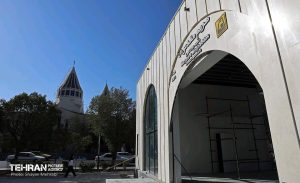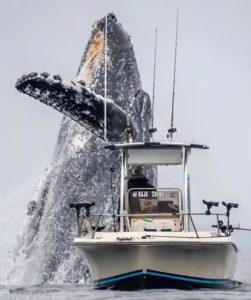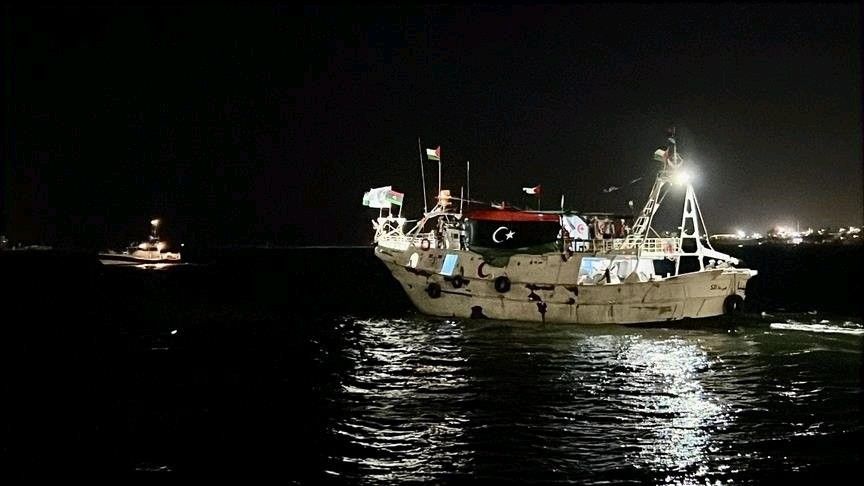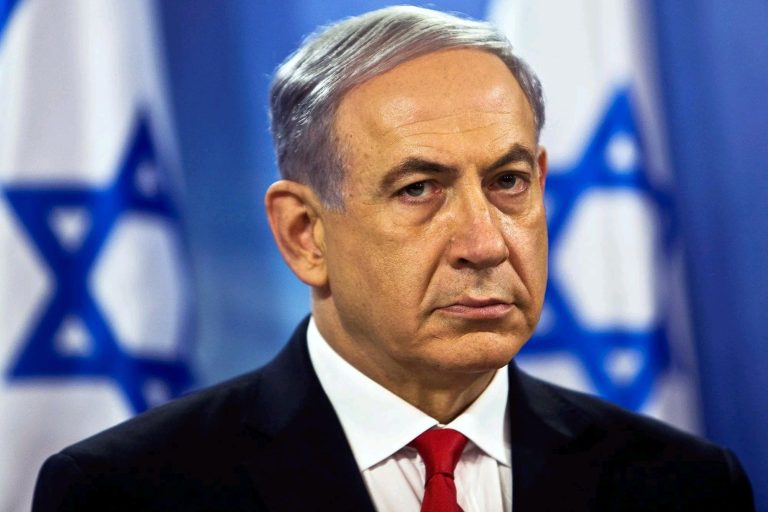Global Sumud Flotilla: Over 50 Aid Ships Nearing Gaza, Israel Prepares Naval Interception.
A high-stakes maritime drama is unfolding in the eastern Mediterranean, where a massive aid flotilla is on a collision course with the Israeli navy. According to reports from Israel’s public broadcaster KAN, more than 50 vessels from the “Global Sumud Flotilla” have now entered Israel’s interception range, sitting roughly 150 miles from the coast of Gaza and setting the stage for what could be one of the largest naval confrontations in years.
READ: Israel Attack: We’ll Support Qatar’s Action Whatever they Decide – Saudi Crown Prince Says
The flotilla, carrying hundreds of international activists and volunteers, is laden with food, medical supplies, and symbolic messages of solidarity for Gaza’s 2.4 million residents. For the organizers, the mission is a direct challenge to the long-standing Israeli-Egyptian blockade, which they condemn as a form of “collective punishment.”

“We Know the Risks”: Activists Defy the Blockade
Communications from the flotilla have grown patchy as it moves deeper into contested waters, but earlier messages from onboard revealed a spirit of defiant resolve. “I joined because I couldn’t just sit and watch children starve,” one activist stated via a satellite phone call. “We know the risks, but the world must not look away.”
This act of civil disobedience is fraught with the ghosts of past confrontations. The memory of the 2010 Mavi Marmara incident, where a similar aid flotilla was raided by Israeli commandos resulting in ten deaths, hangs heavily over the current operation.
Israel Digs In: “Under Any Circumstances”
On the other side, Israel’s political and military establishment is standing firm. KAN reported that the Israeli navy is actively preparing to “seize the ships at sea.” The reported plan involves forcibly removing activists to a large warship before towing the smaller vessels to Ashdod Port.
READ: There Will Be No Palestinian State: Israeli PM Rejects Palestinian Statehood Ahead of UN Meeting
In a detail that has raised significant alarm, the broadcaster noted that “some [ships] may sink during the operation,” highlighting the potential for chaos and tragedy. Israeli officials have justified the planned interception on security grounds, arguing the flotilla could be used to smuggle weapons into Gaza, despite organizers’ insistent guarantees that the cargo is purely humanitarian.
Israeli political leadership has reportedly issued a clear directive: the flotilla must not be allowed to reach Gaza “under any circumstances.”
A Plea from the Shore and the World
Human rights groups are sounding the alarm. Amnesty International has issued a statement urging Israel to protect the convoy, warning that “the use of violence against unarmed activists would breach international law.” The organization emphatically declared, “The world is watching,” and called for safe passage for the aid.
Meanwhile, in Gaza itself, the approaching flotilla has become a focal point of desperate hope. “Maybe this time the medicine will reach us,” said Amina, a mother of four sheltering in Rafah. “We are surviving on almost nothing.”
The waters off Gaza are now a tense international stage. The coming hours will determine whether this global citizen-led initiative will deliver a rare glimmer of relief or become another chapter in the long and painful story of Gaza’s isolation, with consequences that will ripple far beyond the shoreline.
Discover more from TOKTOK9JA MEDIA
Subscribe to get the latest posts sent to your email.

















![Real Assurance!! Fitness Trainer Proposes To His Girlfriend With A CUSTOMISED Range Rover. . .DAVIDO Is A Learner [See Photos And Video]](https://toktok9ja.com/wp-content/uploads/2018/06/IMG_20180618_113217_652-150x150.jpg)








